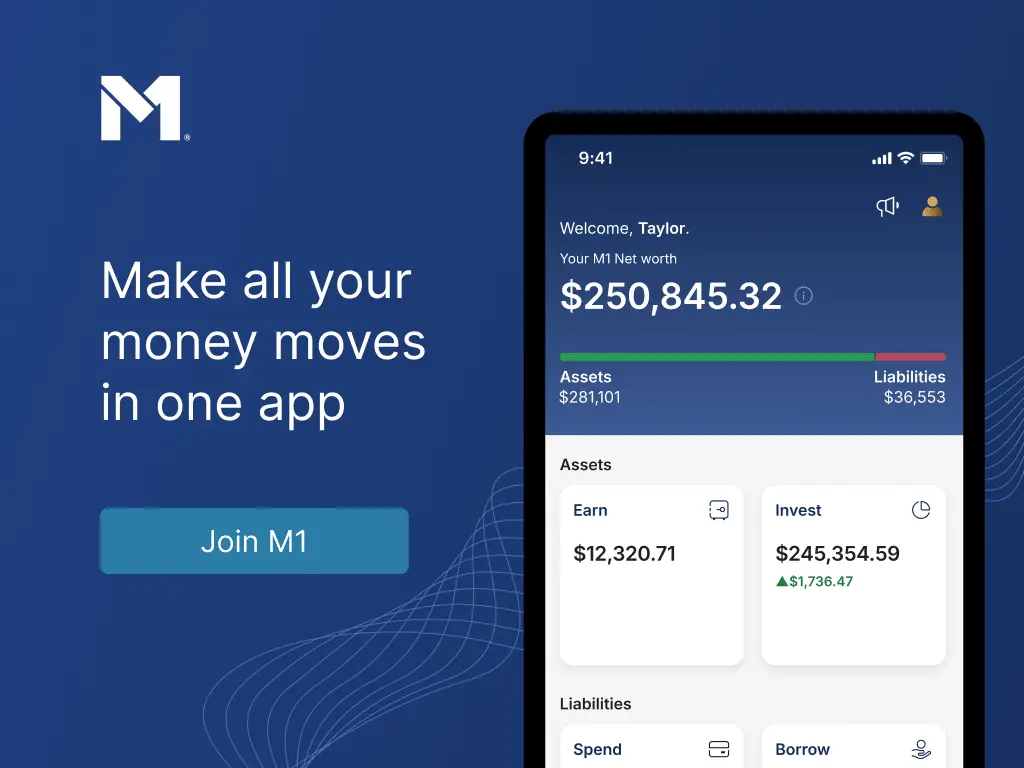Hedge funds are typically only accessible by the ultra rich. Here we'll explore what hedge funds are, why you may or may not want to act like one, and some ETFs to invest like a hedge fund in 2025.
Disclosure: Some of the links on this page are referral links. At no additional cost to you, if you choose to make a purchase or sign up for a service after clicking through those links, I may receive a small commission. This allows me to continue producing high-quality content on this site and pays for the occasional cup of coffee. I have first-hand experience with every product or service I recommend, and I recommend them because I genuinely believe they are useful, not because of the commission I may get. Read more here.
Contents
What Is a Hedge Fund?
As the name suggests, a hedge fund is quite literally, in its simplest explanation, a fund that holds different assets as hedges to each other in an attempt to preserve or enhance returns while lowering volatility and risk. This usually means these different assets are uncorrelated or negatively correlated, meaning they move up at different times.
Hedge funds are set up as limited partnerships that pool investment capital from wealthy individuals and then typically use advanced, complex trading strategies to actively manage a basket of esoteric assets. To invest in hedge funds, you have to be what's called an “accredited investor,” which just means you have a net worth greater than $1 million or an annual net income greater than $200,000. This allows hedge funds to use more aggressive strategies than would otherwise be allowed by the SEC, such as leverage, shorting, derivatives, and greater trading frequency. Examples of hedge fund investors are pension managers, insurance companies, and wealthy individuals or families.
Hedge funds originally got their name from the idea of using a “hedged” bet, holding assets expected to move in opposite directions in order to reduce volatility and expected losses. Modern hedge funds, however, have expanded this definition and usually do not reflect the classic examples and ideas.
There is no one single strategy among hedge funds. Quite the opposite. Different hedge funds utilize very different strategies and trade very different assets. Some may trade stocks and bonds. Others may only trade options and futures contracts. Some may take a global macro approach. Others may choose to follow short-term trends and events.
Hedge funds have designated periods during which you can buy in or withdraw. As such, they are highly illiquid. Your money may be locked up for months or years. Again, this allows managers to be aggressive with capital without worrying about liquidity needs.
There are over 16,000 hedge funds in existence as of 2020. It's important to read the prospectus and understand the strategy, fees, and risks of the hedge fund you're considering.
Should You Invest Like a Hedge Fund? Probably Not.
So you're not an accredited investor and you can't invest in a hedge fund. Should you try to use assets available to you to invest like a hedge fund does? Probably not.
The allure of hedge funds to the average retail investor makes sense. Hedge funds seem exotic due to their inherent exclusivity and relative mystery. But that fact alone obviously should not be a reason to invest in them.
An important but oft-forgotten point is that while some hedge funds make headlines seeking and delivering outsized market returns, likely for only a short period of time, many modern hedge funds simply aim to preserve the capital of their wealthy investors. That is, they are more concerned with maintaining a slow and steady return in any market environment (like the famous All Weather Portfolio) than with generating above-market returns. They do so by shaping their strategy around mitigating volatility and risk.
If you're reading this, odds are your goal is to exceed or match the market return in order to fund greater spending or to expedite the road to retirement, not simply to optimize the portfolio with the goal of minimizing volatility. On average, the strategies and assets used to invest like a hedge fund are more suitable for the retiree who is more concerned with preserving their wealth at that point.
But to briefly address this allure of potential market outperformance, remember alpha – excess risk-adjusted return – is a zero-sum game and a finite resource. For every trade, there's someone on the other side of it who also thinks they're right. The average of all investor returns must necessarily converge to the market return. And as I've explained elsewhere, most managers underperform the market, which is why we're indexing in the first place. For hedge funds that do aim to and succeed in beating the market, we also know that many times their market outperformance can be attributed to excess exposure to known risk factors, not manager “skill.”
But even if your goal is to simply minimize volatility and risk, perhaps born of a low emotional tolerance for risk, retail investors can do this already through diversification with highly liquid, low cost index funds. Even more advanced funds like SPD offer the seemingly elusive derivatives-based crash protection tactics for the retail investor at a cost much lower than that of a hedge fund.
So we know most investors probably shouldn't aim to invest like a hedge fund. But do hedge funds per se – or a strategy that mimics one – deserve any allocation in already-diversified portfolios for a potential diversification benefit? The evidence suggests the answer is no.
Hedge funds themselves do tend to have returns that are lowly correlated to the broad stock market, of which one index for the U.S. is the famous S&P 500. That's the first thing we look for in considering assets to add to the portfolio. The first problem is that this low correlation is born of an inherent returns distribution that does not resemble that of the market. Specifically, hedge funds and strategies that mimic them present excess tail risk, or higher probability of extreme outcomes not seen with more traditional assets, due to the necessary concentration on which their trading thesis rests.
The second and more important problem is that this low correlation tends to skyrocket at precisely the wrong time – during market crashes. If this sounds familiar, it's the same case I made for why corporate bonds deserve no place in diversified investment portfolios in my opinion. In fact, the relative decrease in liquidity and widening of credit spreads in market crashes are two specific factors that hurt both hedge funds and corporate bonds during times of crisis in financial markets.
3 Hedge Fund ETFs
If you do still want to invest like a hedge fund just for the heck of it, we can check out a few ETFs below to do just that. Hedge funds are considered an “alternative” investment, thus these ETFs are classified as “alternative ETFs,” also colloquially known as “liquid alts” due to their greater tradability compared to hedge funds.
Methodologies among hedge fund ETFs vary; some funds seek to track indexes that replicate hedge fund returns, some seek to copy actual holdings that are reported by hedge funds quarterly, and others simply use an overarching hedge-fund-like strategy like long/short, market-neutral, currency-carry, merger arbitrage, etc.
RPAR – RPAR Risk Parity ETF
RPAR from Toroso Investments is far and away the most popular fund of this type with over $1.5 billion in assets. For all intents and purposes, it is basically the famous All Weather Portfolio in a single ETF. For that convenience of being completely hands off, RPAR commands a fee of 0.51% – not exactly cheap, but certainly much less expensive than an actual hedge fund.
The fund has target allocations of 35% TIPS, 25% global stocks, 25% commodities, and 15% Treasury bonds, and rebalances quarterly. The treasuries are leveraged; it's my understanding that the fund has total nominal exposure of 120%. I reviewed the details of this fund separately here.
QAI – IQ Hedge Multi-Strategy Tracker ETF
QAI from New York Life is a fund-of-funds that covers multiple hedge fund return sub-indexes, thereby attaining exposure to a myriad of hedge fund trading strategies: global macro, long/short, fixed income arbitrage, market neutral, event-driven, and Emerging Markets. In doing so, QAI allows investors to avoid having to choose a specific strategy, which is likely the reason why it's one of the most popular liquid alt ETFs out there with over $800 million in assets. The fund has 54 holdings and an expense ratio of 0.79%.
MNA – IQ Merger Arbitrage ETF
MNA is also from New York Life and is only slightly behind QAI in popularity with nearly $700 million AUM. This fund uses what's called a “merger arbitrage” strategy, buying companies that have been announced as targets for acquisition or takeover.
MNA's long exposure to these takeover targets is offset with short exposure to broad global equities indexes, providing concentration and low correlation to broad equities. The arbitrage opportunity comes in the form of the difference between the current price of the acquired company and the price received from the buyout.
Out of these 3 funds, MNA has by far the lowest correlation to the broader stock market at about 0.5.
MNA has 34 holdings and an expense ratio of 0.77%.
Where To Buy These Hedge Fund ETFs
If you want to buy a hedge fund ETF, the ones listed above should be available at any major broker. My choice is M1 Finance. The broker has zero trade commissions and zero account fees, and offers fractional shares, dynamic rebalancing, and a modern, user-friendly interface and mobile app. I wrote a comprehensive review of M1 Finance here.
Are you nearing or in retirement? Use my link here to get a free holistic financial plan and to take advantage of 25% exclusive savings on financial planning and wealth management services from fiduciary advisors at Retirable to manage your savings, spend smarter, and navigate key decisions.
Interested in more Lazy Portfolios? See the full list here.
Disclaimer: While I love diving into investing-related data and playing around with backtests, this is not financial advice, investing advice, or tax advice. The information on this website is for informational, educational, and entertainment purposes only. Investment products discussed (ETFs, mutual funds, etc.) are for illustrative purposes only. It is not a research report. It is not a recommendation to buy, sell, or otherwise transact in any of the products mentioned. I always attempt to ensure the accuracy of information presented but that accuracy cannot be guaranteed. Do your own due diligence. I mention M1 Finance a lot around here. M1 does not provide investment advice, and this is not an offer or solicitation of an offer, or advice to buy or sell any security, and you are encouraged to consult your personal investment, legal, and tax advisors. Hypothetical examples used, such as historical backtests, do not reflect any specific investments, are for illustrative purposes only, and should not be considered an offer to buy or sell any products. All investing involves risk, including the risk of losing the money you invest. Past performance does not guarantee future results. Opinions are my own and do not represent those of other parties mentioned. Read my lengthier disclaimer here.

Are you nearing or in retirement? Use my link here to get a free holistic financial plan and to take advantage of 25% exclusive savings on financial planning and wealth management services from fiduciary advisors at Retirable to manage your savings, spend smarter, and navigate key decisions.




Leave a Reply